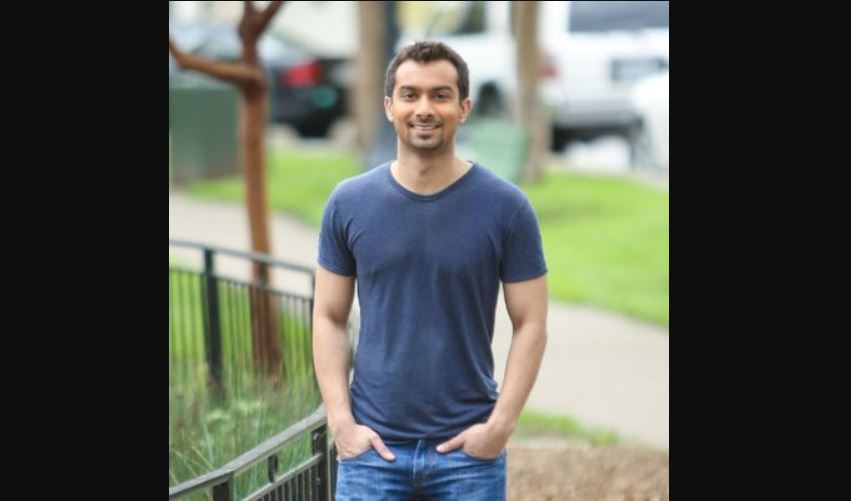Apoorva Mehta quits Instacart $1.3 billion richer

Apoorva Mehta
Instacart’s Indian American co-founder Apoorva Mehta has ended his 11-year tenure with the company he founded in 2012 with a $1.3 billion fortune as the online grocery-delivery giant went public.
As the the San Francisco-based company made its stock market debut, Mehta, 37, relinquished his board position as executive chairman to current CEO Fidji Simo, a former Meta Platforms Inc executive, after transitioning to the role from CEO in August 2021.
The young entrepreneur, who became a billionaire in 2020, is exiting with “a $1.3 billion fortune,” Fortune reported. His addition to the Forbes coveted list of billionaires comes after Instacart’s value rose from $7.9 billion to $13.7 billion.
READ: Instacart cofounder Apoorva Mehta accused of stealing trade secrets (December 22, 2022)
Forbes estimated at the time that “Mehta owns a 10 percent stake, making him the newest member of the three comma club with a net worth of $1.2 billion.”
Instacart, which is incorporated as Maplebear Inc, priced its IPO at $30 a share on Sep 18, “giving it a $9.9 billion valuation,” according to media reports. “The following day they “jumped more than 40% “when they began trading in New York and “were at $40.02 by afternoon.”
According to the Associated Press, the IPO is “a long-awaited step for Instacart,” after it “filed privately for an IPO in May 2022, but delayed those plans last fall when the markets were roiling due to recession fears.”
READ: Instacart co-founder Apoorva Mehta calls it quits (July 25, 2022)
The company raised $660 million in its initial public offering, selling 22 million shares at $30 apiece, the news agency reported. That pricing gave Instacart “a market value of around $10 billion, significantly lower than the $39 billion value placed on it after a fund-raising round in 2021.”
Data shared on the company website reveals that it “provides delivery and pickup from 85% of US grocers, or more than 80,000 stores, using a network of 600,000 freelance shoppers.
It offers retail enablement solutions for more than 1,400 retail banners across more than 80,000 locations, according to the website.
Mehta founded Instacart in 2012. The demand for the company’s delivery model has skyrocketed due to the coronavirus pandemic.
ALSO READ: Grocery delivery start-up company Instacart run by Apoorva Mehta is valued at $2 billion after fresh round of capital (December 30, 2014)
Citing estimates from Instacart, Forbes reported then that the company’s “order volume has gone up by as much as 500 percent in the past 12 months,” with the average customer spending up to 35 percent more per order.
Instacart also provides in-store technology, like smart carts and electronic shelf tags, and sells online ads to food companies and retailers. It says it has 7.7 million active customers who spend about $317 per month on the platform.
Mehta was born in India and grew up in Canada and Libya. He studied engineering at the University of Waterloo and worked as a design engineer at Blackberry and Qualcomm.
He moved to Seattle, Washington, to work at Amazon as a supply chain engineer where he worked on Amazon’s Fulfillment Engine “to deliver packages quickly and efficiently to customers,” his LinkedIn profile says.
In a blog on the company’s website, Mehta wrote that an incident in a small town outside of Toronto was one of the reasons he wanted to start Instacart.
“I remember waiting at a bus stop carrying bags of groceries in the freezing cold,” he wrote. “Fast forward to 2012, I realized that while a lot had changed in the world, grocery shopping was the same. I wanted to change that. I wanted to make grocery shopping effortless.”
He also wrote about trying his hand at “at least” 20 companies before starting Instacart. “While every single one of them eventually failed, I learned a lot through this journey, including things like rapid prototyping, business strategy, and managing my own psychology through the inevitable ups and downs of building a company.”
Mehta had a knack for fundraising as well. Over the last decade, he has raised “more than $2.8 billion from investors including Sequoia Capital and Andreessen Horowitz,” according to PitchBook.
